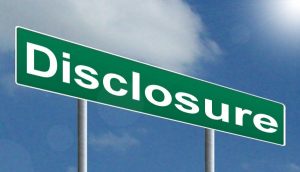If you’ve applied for a DBS recently, you’ve probably come across the term “filtering”. There’s a lot of confusion about what this means and how it all works. Read on for our basic guide to the process, and how to work out whether it might apply to you.
What does filtering mean?
According to the government guidance, filtering means “identifying and removing protected convictions and cautions so that they are not disclosed on a DBS certificate.” In simple terms, it means that your entire police record might not appear on your form. This isn’t always straightforward. The guidance runs for many pages and can use complex legal jargon. How much information is disclosed on your disclosure form will depend on a wide range of factors. If you are confident that you have no police record – not even a caution – this isn’t something you need to worry about. If however you’ve had brushes with the law in the past, you need to be aware of how the process works.

Standard and Enhanced Disclosures
The concept of filtering only really applies to standard and enhanced disclosures. These are the middle and most detailed level of checking done on people applying to work in certain occupations in the UK. These checks might show up convictions or cautions which can be considered “spent” in most circumstances. The whole idea behind spent convictions is to give people who have made mistakes in their youth the chance of a fresh start. Does someone with a caution for being in a pub fight at 19 deserve to have to declare that to every employer? Probably not. People move on with their lives without having the baggage of a police record.
However, when it comes to getting an enhanced disclosure, these old crimes could come back to haunt you. Enhanced disclosure forms show everything on your police record if it’s relevant.
Deciding what to leave off a disclosure certificate
Applicants can’t decide what they want to have listed on a disclosure certificate. Employers can’t decide what they want to see either. The government make the rules about disclosure. What appears on your form depends on your age, and the type of crime. For example, cautions received when you were under 18 are usually left off disclosure certificates after two years. If you were older when the caution was received, after six years the caution won’t appear on a disclosure certificate.
Disclosure certificates will always show some more serious crimes. If you’ve ever been in prison, that will never be filtered out. There’s also a long list of offences which will never be left off a DBS check form. This includes things as diverse as endangering an aircraft, sexual and terrorism offences.
What should I tell my employer?
If you have a police record, go through the guidance to work out whether or not your convictions will appear on the form. You don’t have to tell your employer about anything which won’t appear on your form. Honesty is the best policy, especially with minor crimes.